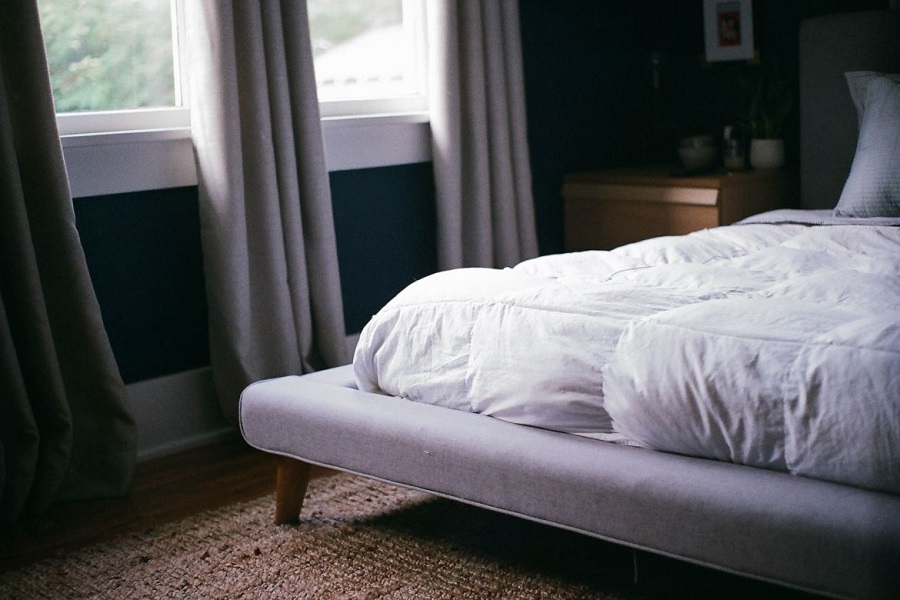Sleep is a vital part of overall well-being, and nearly everyone can relate to feelings of fatigue from lack of sleep. Although it may seem like you can grab a cup of coffee and catch up on sleep over a weekend or your next day off, there are significant implications regarding the lack of adequate, restful sleep on a regular basis.
Research has shown that “reducing your sleep by a single hour per night increases the expression of genes associated with inflammation, immune excitability, diabetes, cancer risk and stress.” Even the Centers for Disease Control and Prevention (CDC) has stated that “lack of sleep is a public health epidemic, noting that insufficient sleep has been linked to a wide variety of health problems.” [1]
Sleep deprivation can take a toll on your body in similar ways that physical stress or illness can. Just as physical and mental stress can contribute to a rise in stress hormones and increased inflammation, the same is true when it comes to too little sleep.
In addition to other benefits of a good night’s rest, such as increased energy, enhanced creativity, and better performance and memory, one of the major jobs of the brain actually occurs while we sleep: detoxification.
Because the brain isn’t directly part of the lymphatic system, our body’s primary route for detoxification, it has its own method for clearing harmful toxins and metabolites, via the glymphatic system. You can think of this as waste removal, and this system operates primarily at night while you sleep and, in essence, literally clears your mind! The glial cells within the brain control the flow of the glymphatic system by shrinking or swelling, and brain cells are thought to shrink 60% while asleep, allowing for more space for cerebral spinal fluid to carry toxins away [2].
Additionally, the amount of sleep and the time in which we sleep also impacts our body’s innate circadian rhythm, which drives physiological processes at the cellular level throughout the body, which is why the risk for multiple chronic conditions increase with a lack of sleep.
Tips for your best rest:
Set your circadian rhythm
By having enough natural sunlight in the day, especially first thing in the morning, and avoiding exposure at night, your body will get the message that daytime has arrived and similarly begin to produce melatonin upon weaker light signals later in the day. Avoid artificial blue light (cell phones, tablets, etc.) in the evening, at least 2 hours before bedtime as electronics can impede melatonin production. Consider wearing blue-blocking glasses if exposure to blue-light is unavoidable.
Sleep in complete darkness and keep the room temperature cool
Even small amounts of light, such as from your alarm clock or another dim lighting, can disrupt your circadian rhythm. Keeping the temperature in your room cool can mimic the natural decrease in temperature your body experience while you sleep, which also helps to regulate your body’s natural rhythm.
Check your space for EMFs
Electromagnetic fields can disrupt the activity of the pineal gland, where some of our serotonin and melatonin are produced. EMFs are also harmful to health for various other reasons, and turning your Wifi router off at night is one way to give your body a break from EMF exposure. Consider using a battery powered alarm clock and keep your cell phones, computers, and tablets in a separate room.
Reserve your bed for sleep
Good sleep hygiene includes avoiding the use of electronics or working in your bed at any point during the day, which allows your brain to dissociate work and rest. Reserve your room as a healing, restorative space, not mission control. Consider incorporating a bedtime routine to quiet your mind and body and move into a state of rest. Taking a warm bath, meditating, reading, or spending time with family are ways to help relax your body and prepare for sleep.
Exercise
Regular exercise is important for overall health, but also promotes better sleep. Keep in mind that vigorous exercise in the evening can release endorphins that make falling asleep more difficult, so plan accordingly.
Still having trouble falling asleep or staying asleep? Schedule an appointment with your Newbridge provider for additional sleep support!
Resources
1. Sleep Deprivation Risks
2. Sleep Drives Metabolite Clearance from the Adult Brain


